Source
- HRSA HIV/AIDS Bureau (HAB) (206)
- IHIP (155)
- Best Practices Compilation (122)
- Data Integration, Systems and Quality (DISQ) Team (121)
- Center for Quality Improvement and Innovation (CQII) (105)
- ACE TA Center (88)
- IHAP TA Center (84)
- Planning CHATT (59)
- Ryan White Data Support (51)
- Technical Assistance Provider Innovation Network (TAP-in) (42)
- NASTAD (26)
- Cleveland/Lorain/Elyria TGA (26)
- Center for Innovation and Engagement (22)
- The HIV, Housing & Employment Project (17)
- Primary Care Development Corporation (PCDC) (15)
- Rapid ART Dissemination Assistance Provider (15)
- Boston University School of Social Work Center for Innovation in Social Work and Health (12)
- Evidence-Informed Interventions (E2i) (11)
- Unmet Need Training and TA Team (9)
- Strengthening Systems of Care for People with HIV and Opioid Use Disorder (9)
- CRE TA Center (8)
- New York State Department of Health AIDS Institute (8)
- National Minority AETC (8)
- NMAC (7)
- National Quality Center (6)
- Dissemination of Evidence Informed-Interventions Project (DEII) (6)
- Centers for Disease Control and Prevention (CDC) (6)
- National Center for Innovation in HIV Care (5)
- Center for Engaging Black MSM across the Care Continuum (5)
- U.S. Department of Health and Human Services (5)
- Wisconsin Department of Health Services (4)
- In It Together (4)
- SPNS Improving Care and Treatment Coordination Black Women with HIV (4)
- SPNS HIV/HCV Data-to-Care Initiative (4)
- TargetHIV (4)
- University of Washington (3)
- AETC National Coordinating Resource Center (NCRC) (3)
- Center for Advancing Health Policy and Practice (3)
- HRSA/SPNS Workforce Initiative (3)
- AIDS Alliance for Children Youth and Families (3)
- HRSA (3)
- Boston University School of Public Health (3)
- Hartford Department of Health and Human Services (3)
- U.S. Department of Housing and Urban Development (2)
- Multnomah County Health Department (2)
- Abt Associates (2)
- Philadelphia Office of HIV Planning (2)
- SPNS Black MSM Initiative (2)
- SPNS Housing Data Integration (2)
- AIDS Action Foundation (2)
- Massachusetts Department of Public Health (2)
- New Haven EMA (2)
- Dallas EMA (2)
- Indianapolis TGA (2)
- University of California, San Francisco (2)
- SAIC (1)
- HIV.GOV (1)
- HIV/AIDS Medical Homes Resource Center (HIV-MHRC) (1)
- West County Health Centers (1)
- EGM Consulting LLC (1)
- Howard Brown Health Center (1)
- RAND Corporation (1)
- NC-LINK (1)
- Louisiana Department of Health and Hospitals (1)
- Futures Without Violence (1)
- Hudson County HIV/AIDS Services Planning Council (1)
- Boston EMA HIV Services Planning Council (1)
- SPNS Transgender Women of Color Initiative (1)
- SPNS Systems Linkages Project (1)
- Broward County HIV Health Services Planning Council (1)
- Greater Baltimore HIV Health Services Planning Council (1)
- PLOS ONE (1)
- New York City Planning Council (1)
- The Bronx Health and Housing Corporation (1)
- Southeastern Michigan HIV/AIDS Council (1)
- Next Step and Mass CARE (1)
- SPNS Social Media Initiative (1)
- National Council for Behavioral Health (1)
- SPNS Latino Access Initiative (1)
- HRSA HIV/AIDS Bureau (HAB) and Centers for Disease Control and Prevention (CDC) (1)
- Yale University School of Medicine (1)
- SPNS Sexually Transmitted Infections Initiative (1)
- San Francisco Department of Public Health and Transgender Health Services Working Group (1)
- DC Department of Health (1)
- Ohio Department of Health (1)
- National Clinician Consultation Center (1)
- Public Health Foundation (1)
- HRSA HIV/AIDS Bureau (HAB) and NMAC (1)
- Indian Health Service (IHS) (1)
- EHE Systems Coordination Provider (1)
- SPNS HIV/STI Data Linkages (1)
- University of Texas Health, San Antonio (1)
- SPNS HCV Cure among People of Color with HIV (1)
- SPNS EnhanceLink (1)
- API Wellness Center (1)
- UCSF Center for AIDS Prevention Studies (1)
- National Native American AIDS Prevention Center (1)
- SAMHSA (1)
- Cicatelli Associates (CAI) (1)
- Virginia Department of Health (1)
- HRSA Bureau of Primary Health Care (BPHC) (1)
- Philadelphia Prevention Community Planning Group (1)
- HRSA Office of Pharmacy Affairs (OPA) (1)
- PEPFAR (1)
Display as
2203 items found


Webinars • 07/22/2024



Best Practices • 07/17/2024



Best Practices • 07/05/2024

Best Practices • 07/05/2024

Webinars • 07/03/2024


Webinars • 07/02/2024

Webinars • 06/27/2024

Best Practices • 06/28/2024

Webinars • 06/25/2024

Best Practices • 06/28/2024

Documents • 06/05/2024

Best Practices • 06/07/2024
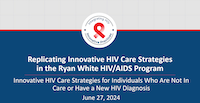
Webinars • 06/27/2024
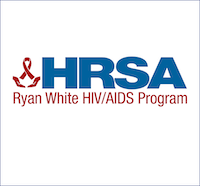
Webinars • 07/22/2024

Webinars • 07/19/2024

Webinars • 07/19/2024
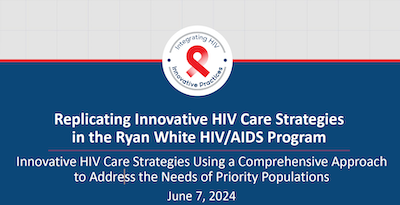
Webinars • 06/07/2024

Webinars • 07/11/2024

Webinars • 07/03/2024

Webinars • 06/27/2024

Webinars • 06/27/2024
Two HIV care interventions that address specific challenges faced by people with HIV as they provide comprehensive care and support: LINCS (HIV and syphilis partner services, linkage to care, and Navigation) and HIV Clinical Pharmacist Services (decreasing the time between referral and linkage to care).

Webinars • 07/22/2024
DCHAP and HAB updates and panel discussion on engaging persons with lived experience.

Webinars • 07/19/2024
This HRSA HIV/AIDS Bureau pre-application webinar is for the funding opportunity, A System-Level Syndemic Approach to Improve HIV Care and Treatment for People from Racial and Ethnic Minority Groups – EVALUATION AND TA PROVIDER (HRSA-24-108).

Webinars • 07/19/2024
This HRSA HIV/AIDS Bureau pre-application webinar is for the funding opportunity, A System-Level Syndemic Approach to Improve HIV Care and Treatment for People from Racial and Ethnic Minority Groups – Demonstration Systems (HRSA-24-107).
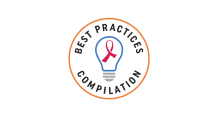
Best Practices • 07/17/2024
Southern Nevada Rapid stART improves access to immediate prescription of ART in the region. Led by the Office of HIV within Clark County Social Service, Rapid stART was initially developed and implemented at 28 sites to link clients to a prescribing HIV provider within seven days of their HIV diagnosis, and included a Rapid stART Response Team to support clients through the process. The Rapid stART program has increased linkage to HIV medical care, initiation of ART within seven days, and viral suppression.

Webinars • 06/07/2024
Two interventions that use a comprehensive approach to address specific challenges faced by people of color with HIV: Black cisgender and transgender women with HIV and people with HIV prevent hepatitis C virus (HCV) infection or reinfection.

Webinars • 07/11/2024
HRSA's HIV/AIDS Bureau held a pre-application technical assistance webinar for the HIV Clinical Training Tracks in Primary Care Residency Program (HRSA-24-109).

Best Practices • 07/05/2024
Multicomponent Support Strategies was implemented during the COVID-19 pandemic shelter-in-place order. Ward 86 Clinic staff and trained volunteers provided outreach to 1,816 clients about the availability of various supports, including in-person medical care, mental health and substance use services, medication delivery, food assistance, housing support services, and Positive Health Onsite Program for Unstably Housed People (POP-UP), a low-barrier high-intensity drop-in program. Results showed that viral suppression increased at a faster rate after Multicomponent Support Strategies was implemented.

Best Practices • 07/05/2024
INFINI-T is a program designed to reach young transgender women of color with HIV and retain them in care through peer advocates who provided case management. These peer advocates facilitated social support sessions with the goal of alleviating the negative impacts of psychosocial factors like history of trauma, stigma, and discrimination. Clients were more likely to be virally suppressed and retained in care after 12 months of participating in the intervention.

Webinars • 07/03/2024
This HRSA HIV/AIDS Bureau pre-application webinar is for the RWHAP Part A HIV Emergency Relief Grant Program (HRSA-25-054).

Webinars • 06/27/2024
Review of intersectionality and creating a care environment to address varied client needs.

Webinars • 07/02/2024
HRSA HIV/AIDS Bureau DMHAP stakeholder calls with the RWHAP Part A and EHE Initiative stakeholder community at large.

Webinars • 06/27/2024
Karl Frantz from Lawndale Christian Health Center and David Thacker from the Mobile County Health Department will present on their processes to collect, extract, and reformat EHR data for RSR reporting through TRAX.

Best Practices • 06/28/2024
The Brandy Martell Project aimed to engage adult transgender women of color in HIV care and increase retention in care by offering patient navigation services, workshop programming, and legal support. Evaluation results showed The Brandy Martell Project had a significantly positive effect on ART prescription for clients.

Webinars • 06/25/2024
This webinar focused on using quality improvement methods and tools (such as Empathy Mapping, Photovoice and Gemba Walk) to better catch stories in health care.

Best Practices • 06/28/2024
In 2021, the City of New Orleans employed five CHWs to work with RWHAP Part A-funded agencies on reengaging eligible clients back into care. From February 2021 through April 2022, CHWs attempted to contact 1,215 clients disconnected from care; 207 of these attended a primary care appointment and re-entered care, a 17% success rate at reengaging clients back into care.
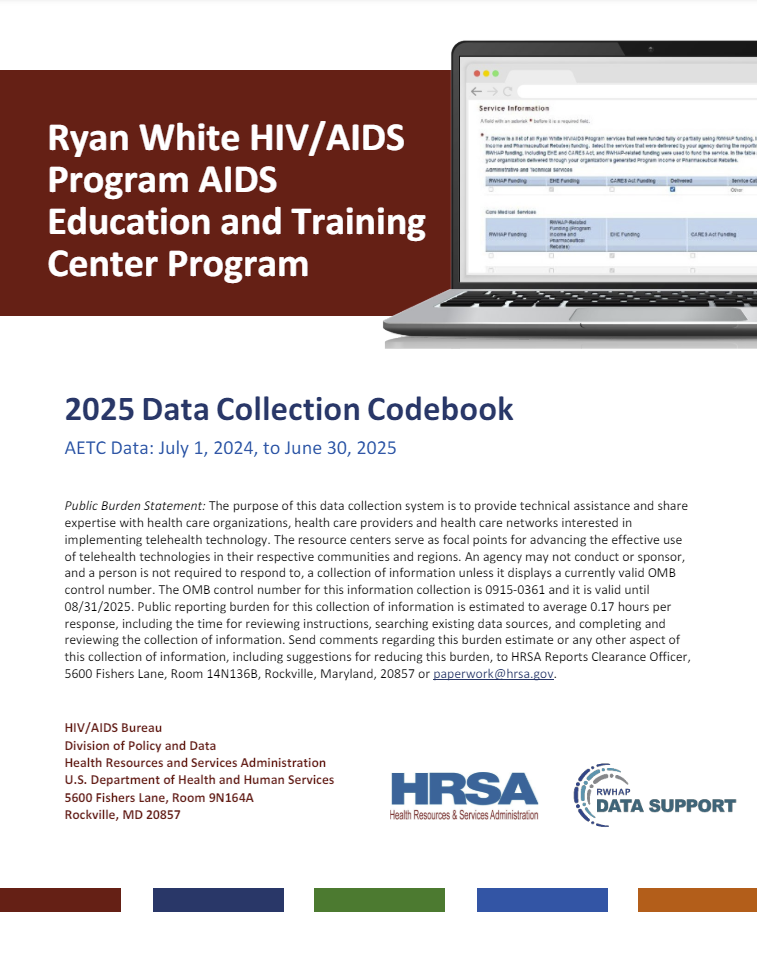
Documents • 06/05/2024
Materials to support data submission by regional AETCs.

Best Practices • 06/07/2024
Rise was implemented to address ART adherence issues among Black people with HIV. Through Rise, peer counselors used motivational interviewing techniques, leveraged Medication Event Monitoring System data to monitor and promote adherence, and connected participants to support services to address unmet needs. A randomized controlled trial showed that Rise participants were more likely to be adherent to ART than non-participants.